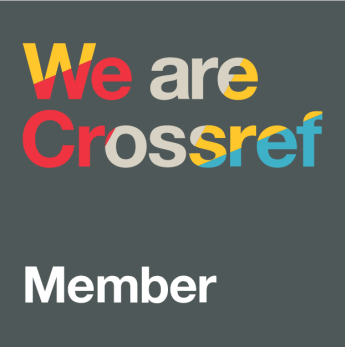Time Management Profile of 7th Grade Student at SMP Negeri 2 Semarang
DOI:
https://doi.org/10.22460/quanta.v8i3.4794Keywords:
Time Management, Students, Junior High SchoolAbstract
English: The problem of student’s time management is still found to be the background for this research, This research aims to find out a picture of time management for class VII students at SMP Negeri 2 Semarang. This research applies a quantitative approach and descriptive study methodology. The total sample for this research was 172 class VII students with the sample collection technique using simple random sampling techniques. The results of research and data analysis show that the time management of class VII students at SMP Negeri 2 Semarang is on average in the medium category, 72 students (42.20%), there are students who have a high level of time management namely 40 students (21, 60%), and 60 students (36.20%) in the low management deficiency category. The findings of this study highlight the important role of guidance and counseling teachers in fostering positive behavior among students at school, which is crucial for the optimal development of their social skills and the improvement of their time management abilities.
Indonesia: Masih ditemukan masalah manajemen waktu peserta didik jadi latar belakang dari penelitian ini, penelitian ini bertujuan untuk mengetahui gambaran manajemen waktu pada peserta didik kelas VII di SMP Negeri 2 Semarang. Penelitian ini menerapkan pendekatan kuantitatif dan metodologi studi deskriptif. Jumlah sampel penelitian ini ialah 172 siswa kelas VII dengan teknik penghimpunan sampel menerapkan teknik simple random sampling. Hasil penelitian dan analisis data menunjukkan manajemen waktu peserta didik kelas VII di SMP Negeri 2 Semarang rata-rata berada di kategori sedang 72 peserta didik (42,20%), ada peserta didik yang mempunyai taraf manajemen waktu tinggi sejumlah 40 peserta didik (21,60%), dan 60 peserta didik (36,20%) dengan kategori rendah manajemen waktunya. Hasil penelitian ini dapat memberikan peran guru BK dalam mengembangkan perilaku yang baik pada peserta didik di sekolah agar proses perkembangan sosial peserta didik dapat berkembang dengan optimal, agar peserta didik memiliki keterampilan manajemen waktu yang baik.
References
Alyami, A., Abdulwahed, A., Azhar, A., Binsaddik, A., & Bafaraj, S. M. (2021). Impact of Time-Management on the Student’s Academic Performance: A Cross-Sectional Study. Creative Education, 12(3), 471-485. https://doi.org/10.4236/ce.2021.123033
Andini, D. W. (2016). “Differentiated Instruction”: Solusi Pembelajaran dalam Keberagaman Siswa di Kelas Inklusif. Jurnal Pendidikan ke-SD An, 2(3), 340-349. http://dx.doi.org/10.30738/trihayu.v2i3.725
Febriani, E. (2012). Kreativitas Siswa dalam Membagi Waktu Belajar Hubungannya dengan Prestasi Belajar. Jurnal Pelopor Pendidikan, 3(1), 50-56. https://repository.stkippgrisumenep.ac.id/id/eprint/834
Ginting, Monika Nina K dan Azis, Azhar. (2014). Hubungan Antara Lingkungan Belajar dan Manajemen Waktu dengan Motivasi Menyelesaikan Studi. Jurnal Universitas Medan Utara, 6(2), 91-97. https://doi.org/10.31289/analitika.v6i2.849
Hamid, F.A., Kader, A., & Eissa, M.A. (2015). The effectiveness of Time Management Strategies Instruction on students' academic time management and academic self efficacy. International Journal of Psycho-Educational Sciences, 4(1), 44-50. https://www.researchgate.net/publication/303648686
Hidayanto, D.N. (2019). Manajemen Waktu. Depok: PT Raja Grafindo Printing.
Hofer. (2007). Individual Values, Motivational Conflicts, and Learning for School. Journal Learning and Instruction, 17(1), 17 - 28. https://doi.org/10.1016/j.learninstruc.2006.11.003
Motoh, T. C., & Saharudin. (2020). Manajemen Waktu Pondok Pesantren terhadap Hasil Belajar Siswa Studi Kasus MTs Ddi Siapo. Nusantara: Jurnal Ilmu Pendidikan, 1(2), 40-46.
Nasrullah, S., & Khan, M. S. (2015). The Impact of Time Management on the Students’ Academic Achievements. An International Peer-Reviewed Journal, 11. www.iiste.org
Nisa, N.K., Mukhlis, H., Wahyudi, D.A., & Putri, R.H. (2019). Manajemen Waktu dengan Prokrastinasi Akademik. Journal of Psychological Perspective, 1(1), 29-34. https://ukinstitute.org
Nurhidayati. (2016). Konsep Manajemen Waktu. Yogyakarta: Pustaka Pelajar.
Nurul, F. R., & Cahyawulan, W. (2020). Self-Help Book dengan Teknik Self Modification Untuk Meningkatkan Keterampilan Manajemen Waktu Peserta Didik Kelas X di MAN 1 Kota Tangerang 70 Insight. Jurnal Bimbingan dan Konseling, 9(1).
Sari, V. Y. (2018). Upaya Meningkatkan Manajemen Waktu Melalui Layanan Bimbingan Kelompok Pada Siswa di MAL UIN-SU Medan. http://repository,uinsu.ac.id/id/eprint/8321
Schunk, D.H. (2012). Learning Theories and Educational Perspective. Pearson. https://www.researchgate.net/ Dale_H._Schunk_Learning_Theories_An_Educational
Sugiyono. (2015). Metode Penelitian Kuantitatif, Kualitatif, dan R&D. CV. Alfabeta.
Sugiyono. (2017). Metode Penelitian Kuantitatif, Kualitatif, dan R&D. CV. Alfabeta.
Utomo, P., Asvio, N., & Prayogi, F. (2024). Metode Penelitian Tindakan Kelas (PTK): Panduan Praktis untuk Guru dan Mahasiswa di Institusi Pendidikan. Pubmedia Jurnal Penelitian Tindakan Kelas Indonesia, 1(4), 19. https://doi.org/10.47134/ptk.v1i4.821
Vansteenkiste, M., Lens, W., Witte, H. D., & Feather, N. T. (2005). Understanding unemployed People's Job Search Behaviour, Unemployment Experience and Well-being: A Comparison of Expectancy-value Theory and Sel-determination Theory. British Journal of Social Psychology, 44, 269-287.
Wahidaty, H. (2021). Manajemen Waktu: dari Teori menuju Kesadaran Diri Peserta Didik. Jurnal Ilmu Pendidikan, 3(4), 1880-1889. https://doi.org/10.31004/edukatif.v3i4.1015
Downloads
Published
How to Cite
Issue
Section
License
Copyright (c) 2024 Belvaza Feilasifa, Dini Rakhmawati, Ani Prihatin Joediati

This work is licensed under a Creative Commons Attribution-ShareAlike 4.0 International License.
Quanta: Jurnal Kajian Bimbingan dan Konseling dalam Pendidikan is licensed under a Creative Commons Attribution-ShareAlike 4.0 International License. Authors who publish with the Quanta Journal agree to the following terms:
- Authors retain copyright and grant the journal right of first publication with the work simultaneously licensed under a Creative Commons Attribution License that allows others to share the work with an acknowledgment of the work's authorship and initial publication in this journal.
- Authors are able to enter into separate, additional contractual arrangements for the non-exclusive distribution of the journal's published version of the work (e.g., post it to an institutional repository or publish it in a book), with an acknowledgment of its initial publication in this journal.
- Authors are permitted and encouraged to post their work online (e.g., in institutional repositories or on their website) prior to and during the submission process, as it can lead to productive exchanges, as well as earlier and greater citation of published work.
























